Table of Contents
‘What Is Free Speech? The History of a Dangerous Idea’ – Major new book coming next year — First Amendment News 450
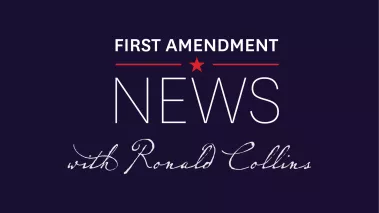
Why, in the West, do we disagree so much on what freedom of speech really means? Where does this discord come from, and what’s its significance? Should we even speak of free speech as a ‘Western’ value? These are pressing political problems, which my work is intended to illuminate. But they are also huge historical questions, which have never been asked before. As my book will show, our particular, modern ideals of free speech date back to the 18th century, but our global and national disputes over it have even deeper historical roots.
Those are the words of Fara Dabhoiwala. He is the author of a forthcoming book titled “What Is Free Speech? The History of a Dangerous Idea” (Belknap Press: an imprint of Harvard University Press, Aug. 5, 2025) (480 pp.).
The late Professor Fred Schauer described the forthcoming book this way:
This is a magisterial cultural and comparative history of the idea of free speech. Loaded with novel insights on almost every page, this book is meticulously documented with original and frequently surprising research on countless previously unexplored topics.
More about the book in a moment, but first a few words about the author.
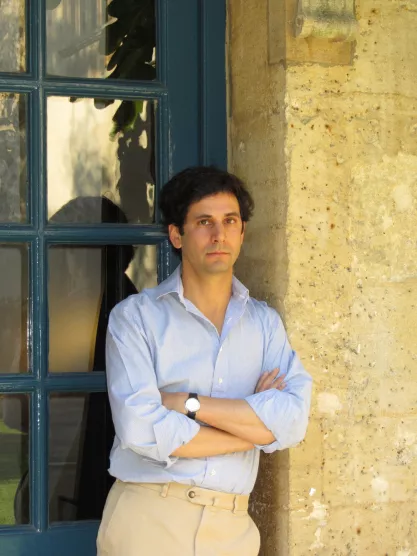
The author
Dabhoiwala is a Senior Research Scholar/Lecturer with the rank of professor at Princeton University. He is a historian of Britain and the English-speaking world whose work traces back to the Middle Ages. Before coming to Princeton in 2016, he spent many years on the Faculty at Oxford, where he is now a life fellow of All Souls College and of Exeter College. He was educated at Oxford, York, and Amsterdam.
Professor Dabhoiwala is the author of “The Origins of Sex: A History of the First Sexual Revolution,” which tells the story of the Enlightenment origins of modern Western attitudes to sex. It drew on pictorial, fictional, judicial, philosophical, and other kinds of evidence, and tried to connect social, intellectual, literary, legal, political, and other kinds of history.
His other writings have appeared in The New York Review of Books, The Guardian, The London Review of Books, and The Shanghai Review of Books, among other places.
Dabhoiwala also did a three-part BBC radio series titled “The Invention of Free Speech.”
The forthcoming book

Here is an abstract of the book:
A leading intellectual historian shows how free speech, once viewed as both hazardous and unnatural, was reinvented as an unalloyed good, with enormous consequences for our society today.
Every premodern society, from Sumeria to China to seventeenth-century Europe, knew that bad words could destroy lives, undermine social order, and create political unrest. Given the obvious dangers of outspokenness, regulating speech and print was universally accepted as a necessary and proper activity of government. Only in the early 1700s did this old way begin to break down. In a brief span of time, the freedom to use words as one pleased was reimagined as an ideal to be held and defended in common.Fara Dabhoiwala explores the surprising paths free speech has taken across the globe since its invention three hundred years ago. Though free speech has become a central democratic principle, its origins and evolution have less to do with the high-minded pursuit of liberty and truth than with the self-interest of the wealthy, the greedy, and the powerful. Free speech, as we know it, is a product of the pursuit of profit, of technological disruption, of racial and imperial hypocrisy, and of the contradictions involved in maintaining openness while suppressing falsehood. For centuries, its shape has everywhere been influenced by international, not just national, events; nowhere has it ever been equally available to women, the colonized, or those stigmatized as racially inferior.
Rejecting platitudes about the First Amendment and its international equivalents, and leaving no ideological position undisturbed, What Is Free Speech? is the unsettling history of an ideal as cherished as it is misunderstood.
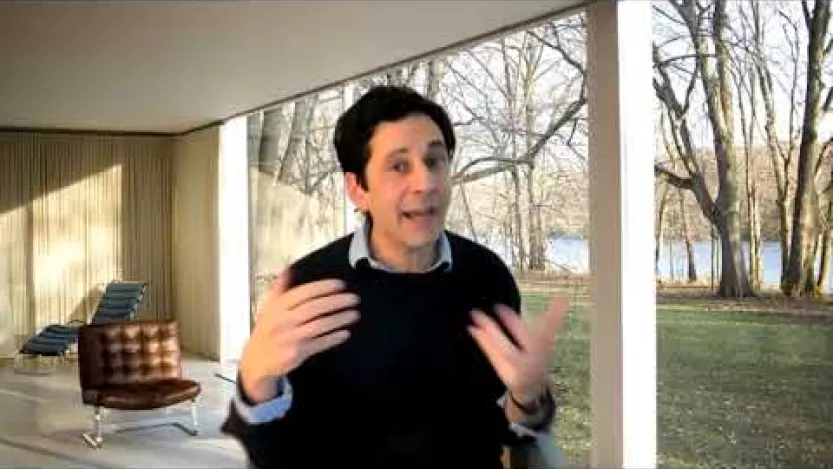
Advance praise
“Elegantly and resourcefully, What Is Free Speech? rescues an important principle from ideological abuse and journalistic simplification and enables a clear understanding of it. This essential book also grippingly relates the inseparably intertwined histories of liberalism and colonialism.” ― Pankaj Mishra, author of Bland Fanatics: Liberals, Race, and Empire
“Fake news and distrusted information are not inventions of our internet era, but recurrences of disputed practices abounding in eighteenth-century America. With telling details and sweeping perspective, Fara Dabhoiwala offers histories of disputes over speech and its regulation. This bracing book shows the forging of contemporary conceptions of 'free speech' in the crucibles of colonialism, slavery, capitalism, and technological disruption out of materials drawn from England, America, Scandinavia, India, and beyond. Anyone interested in understanding freedom of speech, its scope, and its limitations should read this arresting book.” ― Martha Minow, author of Saving the News: Why the Constitution Calls for Government Action to Save Freedom of Speech
Related works
- Mitchell Center Podcast 2.13, “The Scandalous Secret History of the First Amendment,” (2021) (interview with Dabhoiwala)
- Fara Dabhoiwala, “Inventing Free Speech: Politics, Liberty and Print in Eighteenth-Century England,” Past & Present 257 (Nov. 16, 2022), pp. 39–74.
- Fara Dabhoiwala, “Liberty, Slavery, and Biography: The Hidden Shapes of Free Speech,” Journal of British Studies 62 (January 2023), pp. 104–131.
Jaffer & Lakier on Tik-Tok case
- Jameel Jaffer & Genevieve Lakier, “The Supreme Court Must Intervene in the TikTok Case,” New York Times (Dec. 10)
Last week, the Court of Appeals for the District of Columbia Circuit upheld a federal law that threatens to shut down TikTok in the United States. The court’s most consequential conclusion: The First Amendment permits the government to protect Americans from covert foreign manipulation by restricting their access to foreign-controlled media — even when that means Americans’ speech is restricted, too.
The ruling is bad news for TikTok, its China-based parent, ByteDance, and its approximately 170 million American users. It also seriously weakens the First Amendment, and by extension our democracy, at an exceptionally perilous time.
Related
- Eugene Volokh, “TikTok Divestiture Mandate Doesn't Violate the First Amendment,” The Volokh Conspiracy (Dec. 6)
- Lauren Feiner, “TikTok failed to save itself with the First Amendment,” The Verge (Dec. 9)
FIRE’s response to X’s support of Kids Online Safety Act
- “FIRE statement on X’s support of misguided ‘Kids Online Safety Act’,” FIRE (Dec. 9)
By coming out in support of the Kids Online Safety Act, X betrays its past commitments to opposing government censorship.
Hundreds of millions of Americans express themselves online every day. KOSA poses a direct threat to the free speech of adults and minors alike by letting the government dictate how websites and apps used for online speech can be designed and operated. This opens the door to direct government censorship, and it puts pressure on social media companies to aggressively moderate content and suppress viewpoints the government opposes.
There is no way to reconcile these grave threats to free speech with X’s past criticisms of government censorship.
The following statement is attributable to FIRE Lead Counsel for Tech Policy Ari Cohn:
It’s alarming that X would support a government takeover of online speech. They say defending the user’s voice is one of their core values — but KOSA is a direct threat to that voice. X should rethink its position, and the House of Representatives should continue holding firm against this unconstitutional bill.
Cal Law Prof. Kenneth Bamberger weighs in on Texas internet porn law case
- Gwyneth K. Shaw, “Professor Urges Supreme Court to Correct Ruling That ‘Turns First Amendment Precedent on Its Head’,” Berkeley Law (Dec. 6)
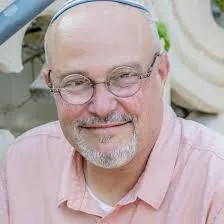
Last year, Texas lawmakers passed a bill aimed at restricting access to porn websites for people under 18. A legal firestorm ensued — and the U.S. Supreme Court will attempt to resolve it, beginning with oral arguments scheduled for next month.
Opponents of the law, which resembles restrictions in other states including Arkansas, Louisiana, Mississippi, Montana, North Carolina, Utah, and Virginia, argue that its reach would extend far beyond the Internet, affecting bookstores, libraries, publishers, and mainstream websites. In addition, the verification requirements would impinge on the First Amendment rights of adults to access these materials, they say.
UC Berkeley Law Professor Kenneth A. Bamberger recently wrote an amicus brief on behalf of the American Booksellers for Free Expression, the Association of American Publishers, the Authors Guild, the Comic Book Legal Defense Fund, the Freedom To Read Foundation, and the Independent Book Publishers Association. The brief asserts that the U.S. 5th Circuit Court of Appeals erred when it upheld the legislation in Free Speech Coalition, Inc. v. Paxton, the case that will come before the Supreme Court Jan. 15, by reducing the scrutiny level applied to a content-based regulation on speech because it purports to protect minors. Unbroken precedent had previously applied strict scrutiny to such laws.
Related
- Eugene Volokh, “Eleventh Circuit Rejects Federal Child Porn/Sex Trafficking Claims Against Video Chat Service Omegle,” The Volokh Conspiracy (Dec. 10)
Marmo & Skover on Lenny Bruce
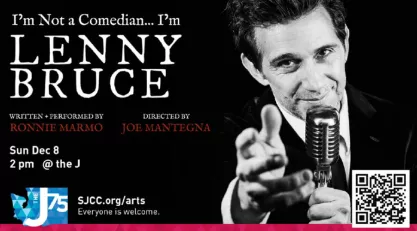
Ronnie Marmo was recently in Seattle to perform, yet again, his ever-so-popular “I’m Not A Comedian, I’m Lenny Bruce” off-Broadway show.
Marmo is a 25-year veteran actor, director, producer and writer who is from Brooklyn, NY / Woodbridge, NJ. Most recently, Marmo inked and starred in “I’m Not A Comedian… I’m Lenny Bruce,” directed by Joe Mantegna. The play has run for over 412 performances between Los Angeles, New York, Chicago and the National Tour. He is also known for his television work on CBS’ Criminal Minds, FOX’s Lethal Weapon as well as a 150-episode arc as Detective Ronnie Dimestico on General Hospital.
Last week Marmo appeared with Seattle University Law Professor David Skover (retired) who engaged with the performer in a discussion of the late comedian about whom Skover co-authored a book on the criminal prosecution of Bruce.

Related
- “Comedy in the time of cancel culture,” First Amendment News, # 427 (June 12, 2024)
- Ronald Collins & Ronnie Marmo, “Comedy clubs as free speech zones — and the antidote to cancel culture,” Chicago Tribune (April 21, 2023)
- Ronald Collins & David M. Skover, “The Trials of Lenny Bruce: The Fall and Rise of an American Icon” (2002) (trial transcripts posted on FIRE’s website)
Academic freedom podcast returns
- Keith E. Whittington, “The Academic Freedom Podcast is Back!,” The Volokh Conspiracy (Dec. 10)
After a bit of a hiatus, The Academic Freedom Podcast is back and will hopefully release on a more regular schedule in coming months. It is still sponsored by the Academic Freedom Alliance and can be found on the same feed and at the same webpage. However, it is also now co-sponsored by the new Center for Academic Freedom and Free Speech at Yale Law School and the episodes can also be found there.
The description of the new episode:
The AFA's Keith Whittington interviews Cary Nelson, the Jubiliee Professor of Liberal Arts & Sciences Emeritus at the University of Illinois at Urbana-Champaign. He served for many years in the leadership of the American Association of University Professors, including terms at its president from 2006 to 2012. He is currently chair of a new organization, the Alliance for Academic Freedom (not to be confused with the Academic Freedom Alliance). In addition to his work on American poetry, he is the author of several books on higher education, including Manifesto of a Tenured Radical from 1997 and No University is an Island from 2010. His latest book is the just published Hate Speech and Academic Freedom: The Antisemitic Assault on Basic Principles.
Subscribe to The Academic Freedom Podcast through your favorite podcast platform so that you don't miss an episode.
More in the news
- Tran Nguyễn, “California To Consider Requiring Mental Health Warnings on Social Media Sites,” Associated Press / First Amendment Watch (Dec. 10)
- Mike Catalini, “N.J. becomes latest state to prohibit bans on books in school, public libraries,” Associated Press / Free Speech Center (Dec. 10)
- Dave Collins, “The Onion’s Bid for Infowars Is Still in Court as Judge Reviews Auction,” Associated Press / First Amendment Watch (Dec. 10)
- Talia Wise, “NY School Formally Approves Bible Club After Eighth Grader Stands Up for His First Amendment Rights,” CBN (Dec. 10)
- Izzy Wagener, “Georgetown’s low ranking in free speech report, explained,” The Georgetown Voice (Dec. 9)
- J. Christian Adams, “Pro/Con: Media shouldn't have more 1st Amendment rights than others,” NewsTribune (Dec. 8)
- Kyndall Coleman, “Does the First Amendment prohibit book bans?,” The Famuan (Dec. 8)
- “Idaho’s ‘Abortion Trafficking’ Law Mostly Can Be Enforced as Lawsuit Proceeds, Court Rules,” Associated Press / Free Speech Center (Dec. 3)
- “Free Speech Arguments – Can the Government Force Drug Companies to Say that Government-Set Prices Are ‘Fair?’ (Bristol Myers Squibb Co v. Secretary United States Department of HHS),” Institute for Free Speech (Oct. 31)
2024-2025 SCOTUS term: Free expression and related cases
Cases decided
- Villarreal v. Alaniz (Petition granted. Judgment vacated and case remanded for further consideration in light of Gonzalez v. Trevino, 602 U. S. ___ (2024) (per curiam))
- Murphy v. Schmitt (“The petition for a writ of certiorari is granted. The judgment is vacated, and the case is remanded to the United States Court of Appeals for the Eighth Circuit for further consideration in light of Gonzalez v. Trevino, 602 U. S. ___ (2024) (per curiam).”)
Review granted
- Free Speech Coalition, Inc. v. Paxton (arguments: Jan. 15)
Pending petitions
- 360 Virtual Drone Services LLC v Ritter
- Turco v. City of Englewood, New Jersey
- Coalition Life v. City of Carbondale
Petitions denied
- R.J. Reynolds Tobacco Co. v. FDA
- Smith v. Stillie
- No on E, San Franciscans Opposing the Affordable Care Housing Production Act, et al. v. Chiu
- Henderson v. Texas
- Nassif v. United States
Last scheduled FAN
FAN 449: “Trump’s FBI pick Kash Patel: A clear and present danger to freedom of the press”
This article is part of First Amendment News, an editorially independent publication edited by Ronald K. L. Collins and hosted by FIRE as part of our mission to educate the public about First Amendment issues. The opinions expressed are those of the article’s author(s) and may not reflect the opinions of FIRE or Mr. Collins.
Recent Articles
FIRE’s award-winning Newsdesk covers the free speech news you need to stay informed.

BANNED WORDS: Iowa social studies teacher bans students from saying ‘Ohio,’ referencing the Holocaust

FIRE statement on X’s support of misguided ‘Kids Online Safety Act’

FIRE statement on D.C. Circuit's decision to uphold TikTok ban


